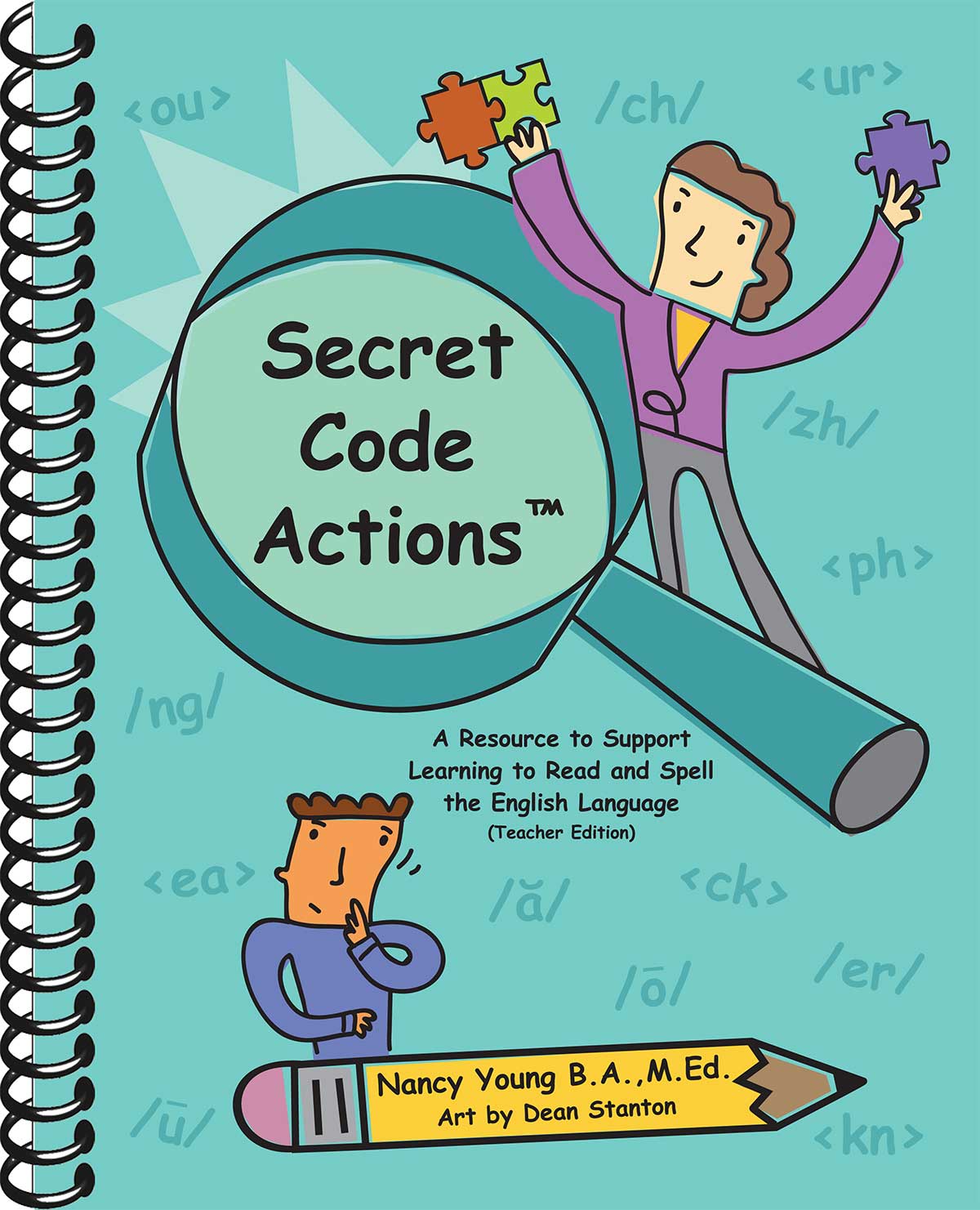Nancy Young, Ed.D.
Reading | Writing | Learning
Movement Resources
Nancy Young, Ed.D.
Reading | Writing | Learning
Movement Resources
Nancy’s Previous Book (currently in revision)
Secret Code Actions
Nancy’s book Secret Code Actions™: A Resource to Support Learning to Read and Spell the
English Language, Teacher and Parent Edition (2016/17), was written to enhance code-based
instruction/practice as needed using skill-based movements. Secret Code Actions™ is currently
being revised. Contact Nancy for more information.
Additional Book Recommendations
How the Body Knows Its Mind: The Surprising Power of the Physical Environment to Influence
How You Think and Feel Beilock, Sian (2015) (Amazon.ca) (Amazon.com)
The Extended Mind: The Power of Thinking Outside the Brain
Murphy Paul, Annie (2021) (Amazon.ca) (Amazon.com)
Enhancing Children’s Cognition With Physical Activity Games
Tomporowski, P., McCullick, B., & Pesce, C. (2015) (Amazon.ca) (Amazon.com)
Mind in Motion: How Action Shapes Thought
Tversky, Barbara (2019) (Amazon.ca) (Amazon.com)
Movement Matters: How Embodied Cognition Informs Teaching and Learning
Macrine & Fugate (Editors) 2022 (Amazon.ca) (Amazon.com)
Articles & Papers (A Summary)
Click HERE for a summary of articles on enhancing learning using movement (curated by Nancy in 2022)
Articles & Papers
“A Narrative Review of School-based Physical Activity for Enhancing Cognition and Learning: The Importance of Relevancy and Integration” If you only have a few minutes, this MUST READ article explains why weaving skill-based movement into instruction and practice may be valuable for some children.
An Evolutionary Upgrade of Cognitive Load Theory: Using the Human Motor System and Collaboration to Support the Learning of Complex Cognitive Tasks (2011 – Open Access)
Effects of 8 weeks With Embodied Learning on 5–6‑Year‑Old Danish Children’s Pre‑reading Skills and Word Reading Skills: the PLAYMORE Project, DK (2022 – Open Access)
Effects of a Classroom-based Program on Physical Activity and On-task Behaviour (2006 – Open Access)
Exercise and Children’s Intelligence, Cognition, and Academic Achievement (2008 – Open Access)
How Seeing and Using Gestures Make Ideas More Memorable (2017 – Open Access)
Using Actions to Enhance Memory: Effects of Enactment, Gestures, and Exercise on Human Memory (2012 – Open Access)
Strategies for classroom physical activity in schools (CDC) (2018 – Open Access)
The Canadian Pediatric Society Physical Activity Guidelines (2023 – Open Access)

